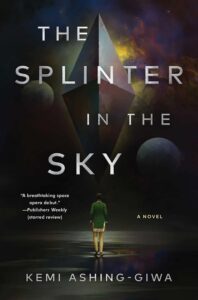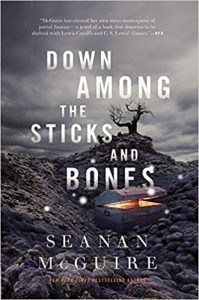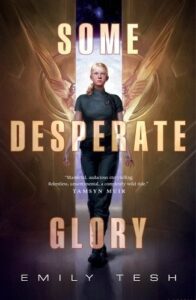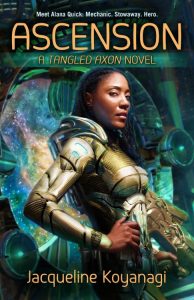Buy this from Bookshop.org to support local bookstores and the Lesbrary!
I’m always looking for more sapphic manga with adult main characters: until recently, yuri stories between schoolgirls was about all I could find available in English. While some of those are great, I am excited to see more queer manga coming out now with other kinds of representation, including some fantastic F/F love stories between adults.
This four-volume series is a quiet love story between two coworkers. In volume one, Hinako is self-loathing. She feels defective for failing to fall in love (with men) and spends spends her time and energy trying to be normal through makeup, fashion, and unsuccessful dating. Meanwhile, Asahi is isolated because she had to raise her little sister when their parents died, which meant she had to grow up fast.
As the two of them begin to bond over lunch breaks, sharing donuts together, they struggle to define what they are to each other. Heteronormativity and allonormativity make it difficult for them to understand how they can be so important to each other without wanting a sexual aspect to their relationship.
This has a melancholic tone, but it’s also gentle and comforting. I liked the slow build of their relationship, and I was happily surprised that this has asexual representation. (The terms aren’t used, but both characters are probably lesbians on the asexual spectrum.) I also appreciated the side characters, like Asahi’s best friend Fuuka and her little sister Subaru. They added some levity and excitement to a more slow-paced love story between Asahi and Hinako.
Doughnuts Under a Crescent Moon isn’t my favourite sapphic manga: it’s a little sadder than I’d prefer, I wish the representation was a bit clearer, and the conclusion is a bit abrupt, but I still really enjoyed it, and I’m happy to see more adult sapphic manga available in English now!





